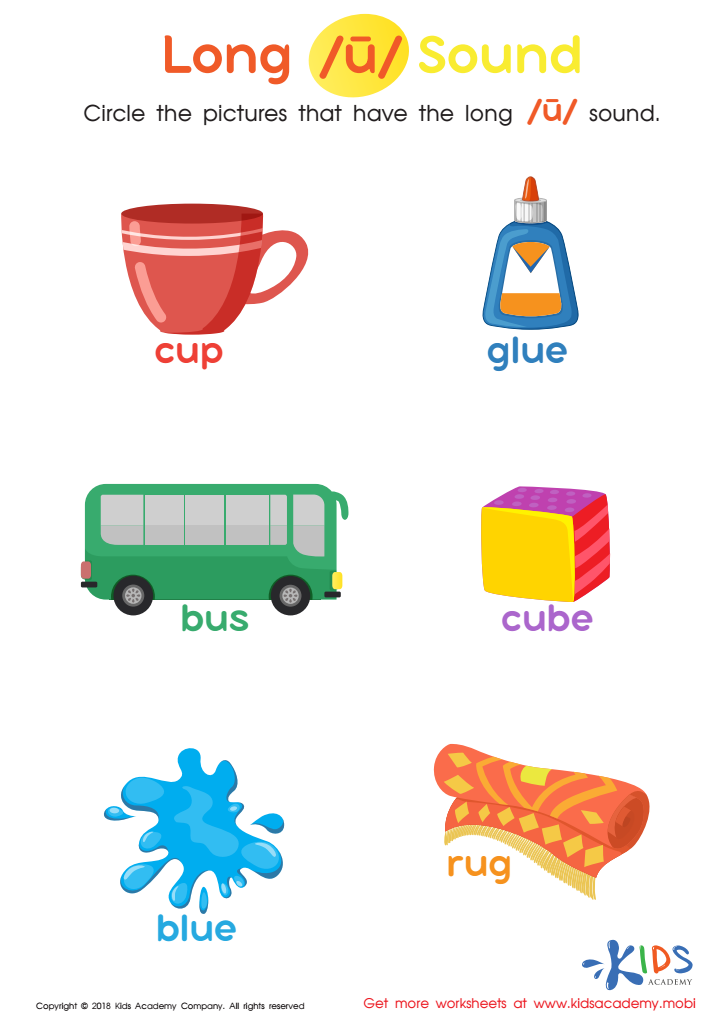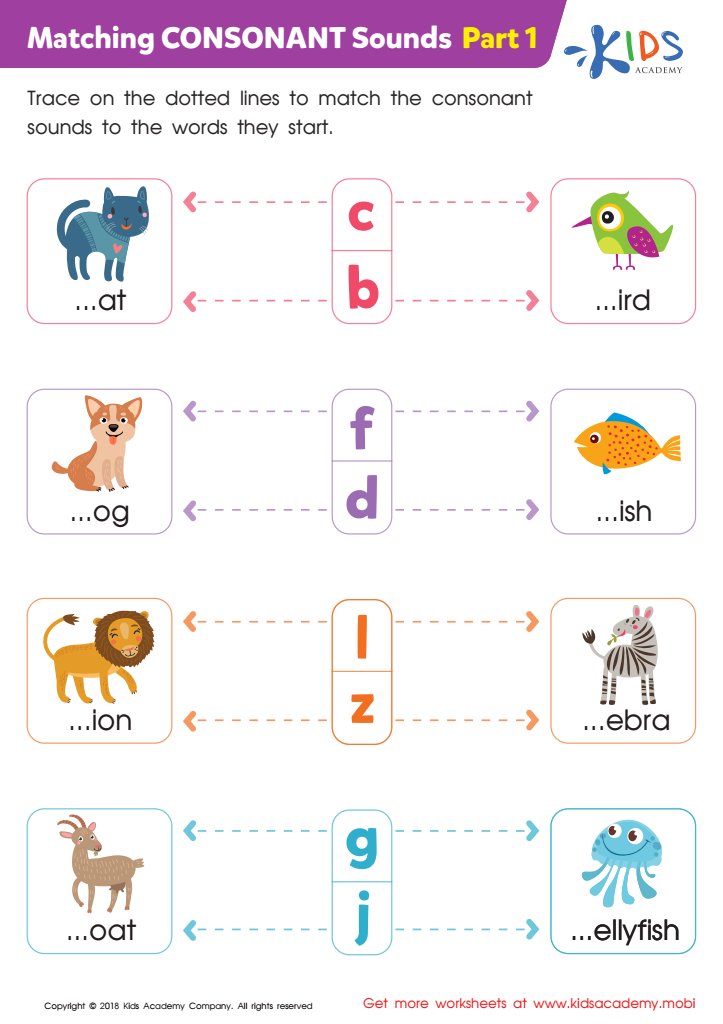Phonics Skills Normal Vowels and Consonants Worksheets for Ages 4-6
4 filtered results
-
From - To
Enhance your child's phonics skills with our engaging worksheets designed for ages 4-6, focusing on normal vowels and consonants. These printables offer interactive activities that make learning fun and effective. Children will explore letter recognition, pronunciation, and sound association through colorful visuals and age-appropriate exercises. Our worksheets are tailored to reinforce foundational literacy skills, preparing young learners for reading success. With a variety of engaging formats, these resources are perfect for classroom use or at-home learning. Equip your little ones with the essential tools they need to build confidence in their reading abilities. Explore our phonics worksheets and watch them thrive!


Short Vowels /e/, /i/, and /u/ Worksheet


Long «u» Sound Worksheet


Long and Short Vowel Sentences: Assessment Worksheet


Matching Consonant Sounds: Part 1 Worksheet
Phonics skills, particularly understanding normal vowels and consonants, are essential for children aged 4-6 as they lay the foundation for literacy development. At this stage, children are beginning their journey into reading and writing, and an awareness of phonics helps them decode and manipulate words effectively. Normal vowels and consonants are the building blocks of language; they help children recognize sound patterns and sight words that are crucial for reading fluency.
Parents and teachers should care about phonics skills because successful early literacy can lead to improved academic performance in later years. A strong grasp of phonics fosters confidence in reading, allowing children to explore books independently and enjoy stories, which broadens their vocabulary and comprehension. Engaging with phonics can also make learning fun, incorporating playful activities and games that sustain children’s interest.
Moreover, early intervention in phonics skills can identify and support struggling readers before they fall significantly behind. By prioritizing phonics education, parents and teachers can ensure that children develop essential skills, providing them with tools to communicate effectively and become lifelong learners. Investing time in phonics education not only sets children up for academic success but also nurtures a lifelong love for reading and learning.
 Assign to My Students
Assign to My Students













